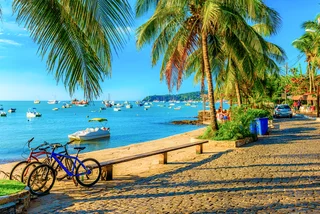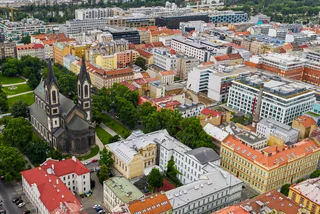Fare prices for Prague’s public transit system will not be going up, despite sharp increases in fuel prices. Prague City Hall also says no cost-cutting actions are being planned at this time.
The prices of both gasoline a diesel have been rising since the war in Ukraine started over two weeks ago. Diesel prices are now up over CZK 13 per liter since the Russian invasion.
PARTNER ARTICLE
“We hope the situation is stabilizing. There are no plans to limit or disrupt connections,” Prague Deputy Mayor Adam Scheinherr, responsible for transportation issues, told daily Metro.
Prague City Hall and the Central Bohemia region together determine the prices for public transit. For now, Central Bohemia is in agreement with the capital over transit prices and does not plan to seek an increase.
Ropid, the regional organizer for Prague’s integrated transit system, gets reimbursed for costs that the collected ticket fees don’t cover. According to Ropid, if fuel prices increase by CZK 1 per liter on average compared to the previous year, it would add up to an additional CZK 30 million per year.
The Prague Public Transit Company (DPP) has a contract for fuel supplies until December 2027 and a contract for AdBlue, a diesel additive that reduces pollution until February 2023. The fuel supply contract takes price fluctuations into account.
DPP spokeswoman Aneta Řehková said that last year, price fluctuations overall had little impact. Diesel prices in the first half of 2021 were lower than expected, and that offset the increases in the second half of the year. For this year, though, Řehková said DPP would have to count on prices being higher than average.
Public transit prices last went up in August 2021. The increase affected 30 minute, 90 minute, one-day, and three-day tickets. The cost of an annual pass remained the same though, at CZK 3,650 per year for adults.
Prague had wanted to keep public transit prices the same, but the Central Bohemia region pushed for an increase to make up for shortfalls due to the coronavirus pandemic. Transit revenue fell significantly due to lockdowns, people working from home, and a lack of tourists.
Prague has started to reduce reliance on fossil fuels for public transit by turning to electric buses and trolleybuses. Electricity prices, though, have also been rising.
In January, construction began on a trolleybus line began and the city also put 14 electric Škoda E'City buses into operation, replacing diesel-powered buses on two routes. The last trolleybus to operate in Prague went out of service in 1972.
Large capacity electric buses will also be introduced on the 119 route that goes between Nádraží Veleslavín and Václav Havel Airport Prague.












 Reading time: 2 minutes
Reading time: 2 minutes 


























